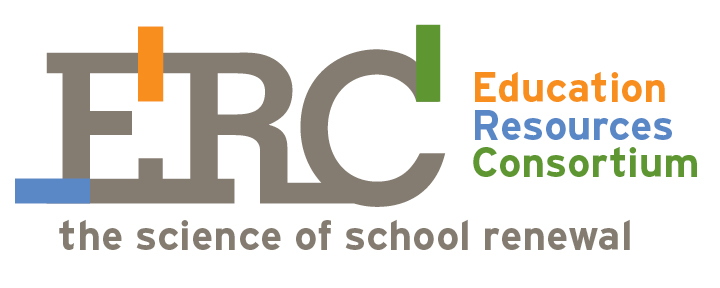Getting kids talking can be easy, right? In most schools, each 5 minutes of passing time is frenzied, loud, full of chatter. Kids can’t pull themselves away from conversation.
Getting them talking about the right stuff? Thinking and arguing critically? Not always so easy. Add to this challenge the fact that over 80% of students polled in a variety of studies over the past few years say that teachers do far too much talking, and you have a sticky classroom issue to address. Katrina Kennett, ERC Consulting Practitioner, has spent a lot of time thinking about it and even more doing something about it. Her work has moved the needle in a big way in schools in high-challenge settings as well as more affluent communities. Katrina visited Albuquerque’s Health Leadership High School in January and introduced her construct of EdCafes to help teachers there get students more involved. She also used EdCafes as a learning tool with the school’s staff to help them develop curriculum and integrate purposeful technology into the school’s project-based-learning model, and to give them practice in classroom implementation. Kennett says that her highly popular EdCafes were originally inspired by the EdCamp movement, and as a teacher, she used them to provide frequent opportunities for students to be participants in high-level, often intense classroom conversations.
Health Leadership teachers took to the idea right away, convinced that EdCafes offer a powerful way to invite that elusive student voice, provide them with choices, promote their leadership and participation, and build a positive and scholarly classroom culture. They got hands-on experience which Director of Academics Sheri Jett called a uniquely helpful and multi-purpose tool for teacher development, and one that works extremely well with their project focus.
Often asked to support schools and districts in instructional technology and social media, Kennett frequently hears how hard it is for teachers to get students engaged, so when working with teachers, she often has them design and participate in EdCafes, inviting them to offer expertise, work through questions and evolving ideas, and share insights with colleagues. At Health Leadership, during a rich professional development week, Kennett facilitated multiple EdCafes, building teachers’ experience with ways to frame and integrate the discussion format.
Kennett designed an EdCafe in which the school’s industry partners strategically joined conversations led by teachers who were designing Trimester 3 projects. The partners, including local pediatricians, New Mexico Army National Guard Medics, health care providers, clinicians and mental health workers arrived to find the session schedule up on the board, and chose from a variety of conversations to join. Teachers used the sessions to construct or improve driving questions, and, spurred by partner energy and ideas, to flesh out activities and opportunities to learn outside the school. A final EdCafe was spent developing a school-wide project for April and May-- a rafting trip on the Rio Grande to explore biodiversity, health conditions along the river and its communities, safety and preparedness, and the regions natural and human history.

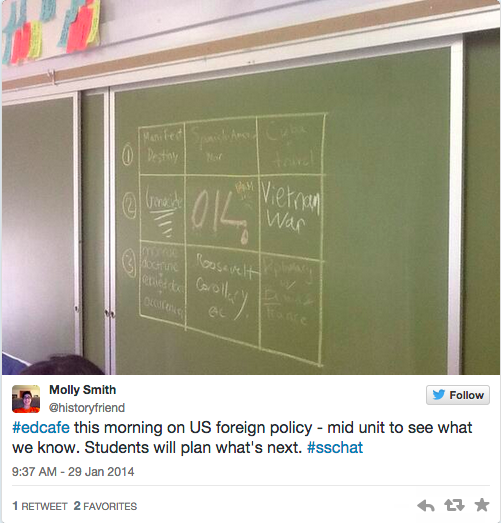
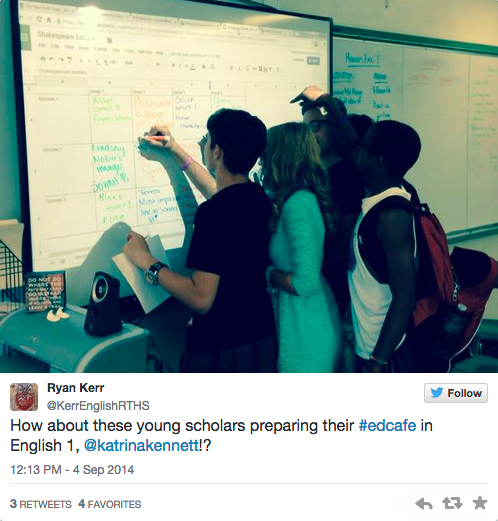
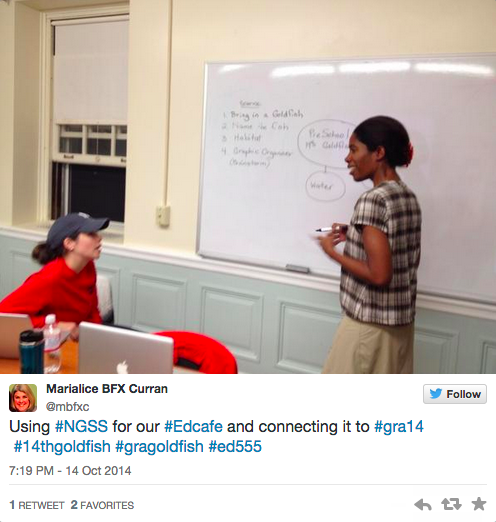


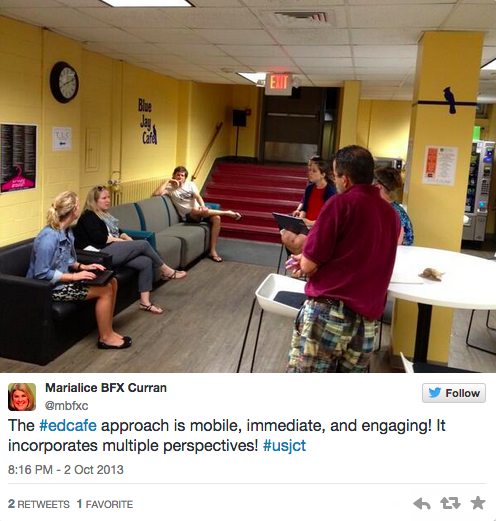
For more about EdCafes, see whatisanedcafe.wordpress.com,
and this link and come back to [our site] soon for more about Katrina’s work with EdCafes and professional development at ERC.
For more on Katrina, go to her bio
